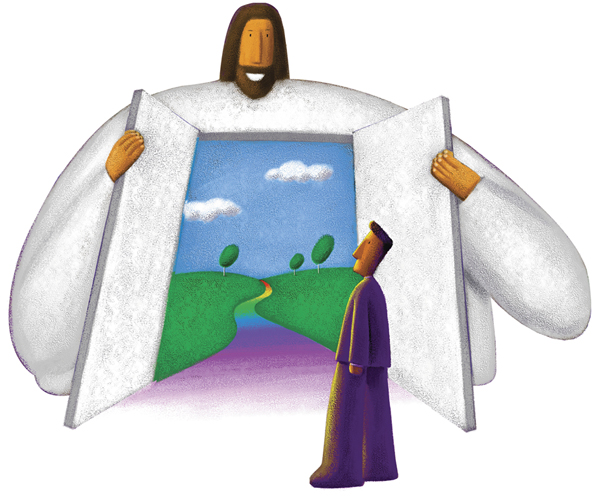 “I have chosen you out of the worldâ€
“I have chosen you out of the worldâ€
- Jesus (John 15:19)
The so-called postmodern world isn’t big on commitment. Nor do people today naturally gravitate to long-standing institutions or organizations that in the past were considered pillars of societal structure. Personal obligations have become more fluid, flexible and relativistic. People today are inclined to the new, the exciting, the adventuresome. Commitment to God, family, employment and relationships are more tentative and questioning today.
Call to Covenant
The biblical call to covenant goes far deeper than commitment. Covenant connects heart and soul-the essence of a person’s life. God first made a covenant with Noah, which he affirmed by placing a rainbow in the sky (see Genesis 9:1-17). God’s covenant was the divine underpinning of his commitment to never again destroy the world with a flood. God later made a covenant with Abraham, promising that Abraham and his descendants would become his chosen people (see Genesis 17:4-8).
God’s covenants with Noah and Abraham were unilateral. God bound himself to his pledge regardless of how the recipients responded. The Mosaic covenant was different. It was bilateral. The Law obliged both God and man. God promised, “I will do this … if you will do that.â€
After leading the estimated two million Israelites out of Egypt, Moses arrived at Mount Sinai. God called him to the summit, where he delivered his law to his people (see Exodus 19-20). The basis of God’s covenant is the Ten Commandments. However, many other regulations followed. The set of laws served as instructions on how the Israelites were to live in fellowship with God and with one another.
After receiving the Law, Moses addressed the people: “The Lord our God made a covenant with us at Horeb. It was not with our ancestors that the Lord made this covenant, but with us, with all of us who are alive here today†(Deuteronomy 5:2-3).
In the New Testament, God reveals his new covenant with his creation through the sacrificial blood of Christ. As Jesus affirmed, “Do not think that I have come to abolish the Law or the Prophets; I have not come to abolish them but to fulfil them†(Matthew 5:17). Through Christ we enter into a new and dynamic covenant with God.
A Soldier’s Covenant
In The Salvation Army, when children and adults come into a personal relationship and covenant with Jesus Christ, they are given the opportunity to become either junior or senior soldiers respectively. After taking membership classes that explore the Army’s doctrines and practices as part of Christ’s Church, individuals are invited to sign the Soldier’s Covenant/Articles of War-a promise to support the spiritual war against sin, injustice, poverty, prejudice, hatred and Satan himself. The initial section states:
Having accepted Jesus Christ as my Saviour and Lord, and desiring to fulfil my membership of his Church on earth as a soldier of The Salvation Army, I now by God’s grace enter into a sacred covenant.
Entering into this sacred covenant is a beautiful and holy encounter between God and the new soldier. It includes the promise to live a life of integrity, upholding Christian principles, being an active witness for Christ and being open to the Holy Spirit’s leading to serve others in Jesus’ name.
Of course, all spiritual covenants are voluntary. Mother Teresa affirmed, “I am not afraid to say I am in love with Jesus because he is everything to me. I want very much for people to come to know God, to love him, to serve him, for that is true happiness. And what I have I want everyone in the world to have. But it is their choice.â€
It is up to us. God longs for us to be in covenant with him. It is a sacred privilege he offers to us-to bind ourselves with him in this covenantal union.
The late Commissioner Edward Read vividly described the essence of this spiritual commitment:
Before the dawn, by love designed
Ere heaven had heard an angel chant,
’Twas shaped in wisdom’s holy mind
The everlasting covenant.
What blessedness God’s child enfolds
While covenantal grace upholds.
Are you ready to consider this splendid covenant with God? My prayers are with you as you consider making-or renewing-your covenant with him.
Commissioner William W. Francis, Territorial Commander